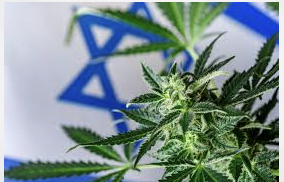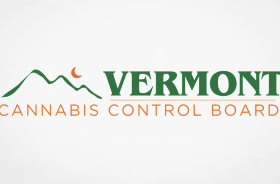White Labeling in the Cannabis Industry; a trademark owners dream.
As the cannabis industry blooms, more and more companies are resulting to white labeling. White labeled products are those products manufactured by third parties, using another’s branding or logo to market the product and sell them to stores. The resulting product appears as though it was created by the brand, even though the product was manufactured by someone else. In essence, these white label products are made by one company and sold by other companies under a different brand name. While white labeling cannabis products at the retail level is currently prohibited in some states, other aspects of the cannabis production market may find increasing comfort in the arrangements.
What this means in the cannabis space is that more people can participate in the industry’s growth as excess product is sold to brands who then market the product under their label instead. To do that, a cannabis company needs to consider how they will implement their intellectual property with the protections needed to remain in control.
Trademarks
Trademarks are an important foundation in this white label scheme, as brands are built to embody the quality and unique persona that people come to expect when they purchase from retailers. Trademarks are a symbol or word established by usage that identifies a product or brand. They identify the source of goods, protect the brand from other similar uses, and help guard against counterfeiting. Trademarks rights are “first in time, highest in right.” The first one using the mark in commerce is said to be the trademark owner. Under common law, trademarks exist even if they are not registered and are created through their ordinary use in commerce. State registrations in the cannabis space, however, can offer additional protection from infringing uses, and provide notice to the industry that you intend to protect and monetize your brand. They also help to distinguish your products for consumers, and build brand loyalty and trust.
Good trademarks are distinctive marks that create new conceptual associations in the minds of consumers. In the beginning, there was just an apple. Then came computers. And now we have one of the strongest trademarks on record—Apple for computers. Trademarks are evaluated and protected on a range of distinctiveness from descriptive marks to arbitrary marks. In selecting a mark, be mindful of the other uses already existing in the marketplace to avoid trademark infringement. Trademark infringement occurs when there is a likelihood of confusion between two similar marks. Because there are a lot of products out there, avoiding infringement starts with evaluating the marketplace, searching the available records, and talking to a cannabis trademark attorney. Initial branding changes at the start of your business venture can be the difference between a successful brand and one bogged down in litigation for years to come. Once you have selected your trademark, verified there are no similar marks in use already, and developed your business plan, license agreements are used to determine how the marks are placed on products and ultimately appear in stores.
Then came computers. And now we have one of the strongest trademarks on record—Apple for computers. Trademarks are evaluated and protected on a range of distinctiveness from descriptive marks to arbitrary marks. In selecting a mark, be mindful of the other uses already existing in the marketplace to avoid trademark infringement. Trademark infringement occurs when there is a likelihood of confusion between two similar marks. Because there are a lot of products out there, avoiding infringement starts with evaluating the marketplace, searching the available records, and talking to a cannabis trademark attorney. Initial branding changes at the start of your business venture can be the difference between a successful brand and one bogged down in litigation for years to come. Once you have selected your trademark, verified there are no similar marks in use already, and developed your business plan, license agreements are used to determine how the marks are placed on products and ultimately appear in stores.
Licensing Agreements
As between cannabis producers and white labelers, licensing agreements are the foundation. A license agreement is a contract. A fairly complex one. They provide the protection that these trademarked brands need to open doors to creation with alternative manufacturers. These agreements provide for the expectations of the party as to quantity, royalties, and quality. A trademark license agreement supports how a brand is crafted, and how trademarks are used to develop the products that are ultimately created and manufactured by someone else. These agreements help to protect the brands and elaborate the relationship between the multiple people that are collaborating to create one product into an easily understood happening.
In certain states, license agreements like these that concern intellectual property must be disclosed to the governing agency, so it is helpful to obtain the help of a local attorney with specialized knowledge in the industry to make certain that your agreements and labeling are all compliant with state regulations.
The elements of a good license agreement include discussions on exclusivity, confidentiality, non-solicitation, territoriality, royalties, and quality control. They also provide for other guarantees including time frames for production and which party controls the trade secrets, copyrights, patents, and trademarks. Distribution management is also a common element included in these contracts. These agreements do more than just protect trademarks, they provide a structure for building business growth and simplify complex relationships into easily understood terms.
Trade Secrets
What many companies need to consider in their white labeling relationships is the protection and ownership of trade secrets. Trade secrets are intellectual property rights in confidential information that may also be licensed for the production of cannabis. To qualify as a trade secret, the information must be commercially valuable because it’s a secret, be known by a limited group of persons, and be the subject of reasonable steps to keep the information secret. Unlike patents, trade secrets are not registered and are protected through measures that keep them proprietary. Trade secrets commonly include recipes, formulas, client lists, business plans, manufacturing techniques, and more. In having other companies produce products, these trade secrets are often disclosed and implemented. The trade secret confidentiality provisions inside licensing agreements help to provide protection for these highly valuable pieces of information and retain brand value for their businesses, as their innovations remain their own.
Conclusion

Elijah Hartman Trademark Counsel for the Cannabis Industry
Whether you are planning on expanding and growing your brand in the legal cannabis space to include white labeling, or already participating in multi-party manufacturing relationships, a written license with manufacturing provisions can provide the strength your business needs to thrive and avoids the difficulty of hand-shake deals laden with ambiguity. Talk with your legal counsel today and discuss your existing agreements to make certain you have a robust contract in writing with the protections you need to avoid the pitfalls of informality that is rampant in the industry today.



















